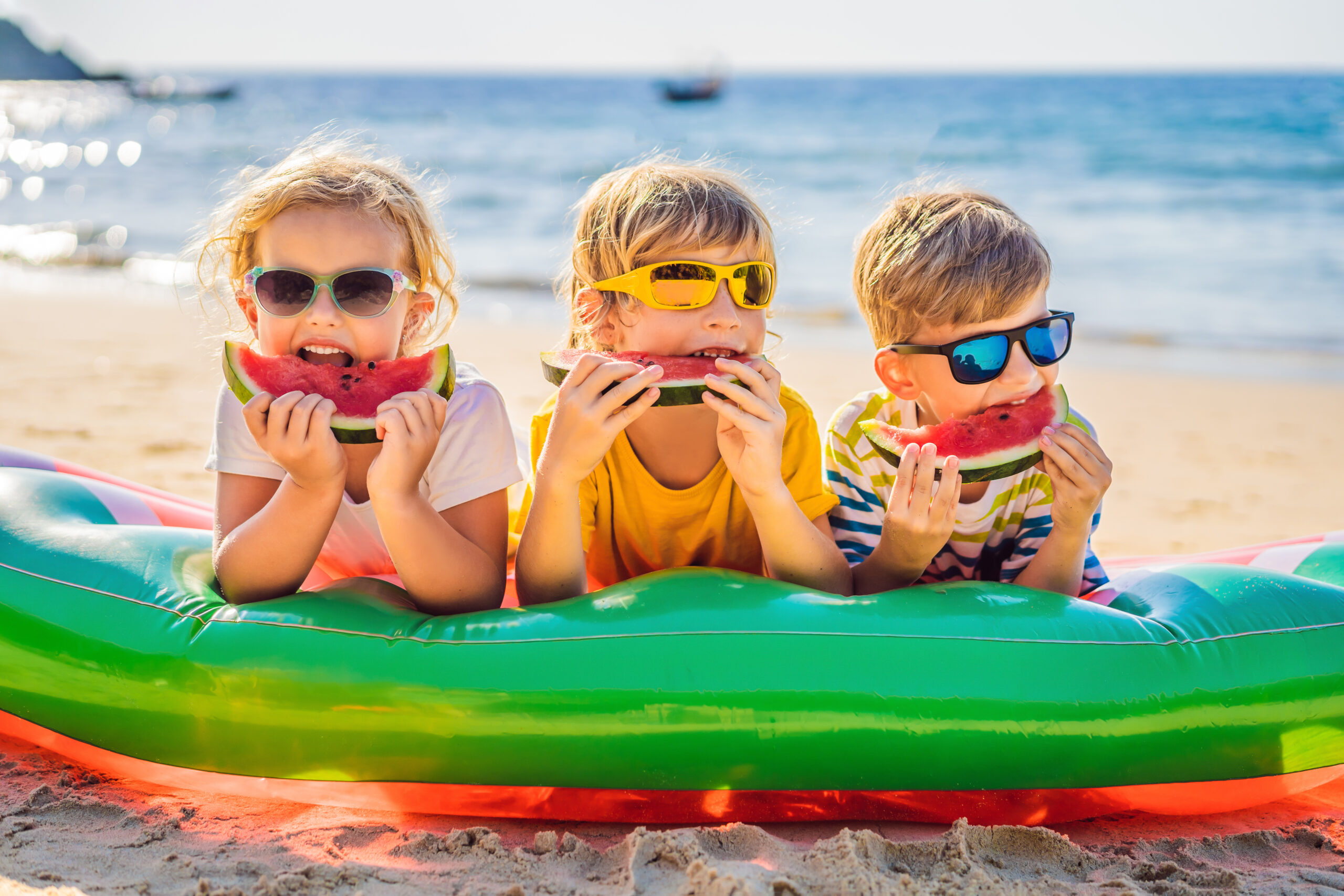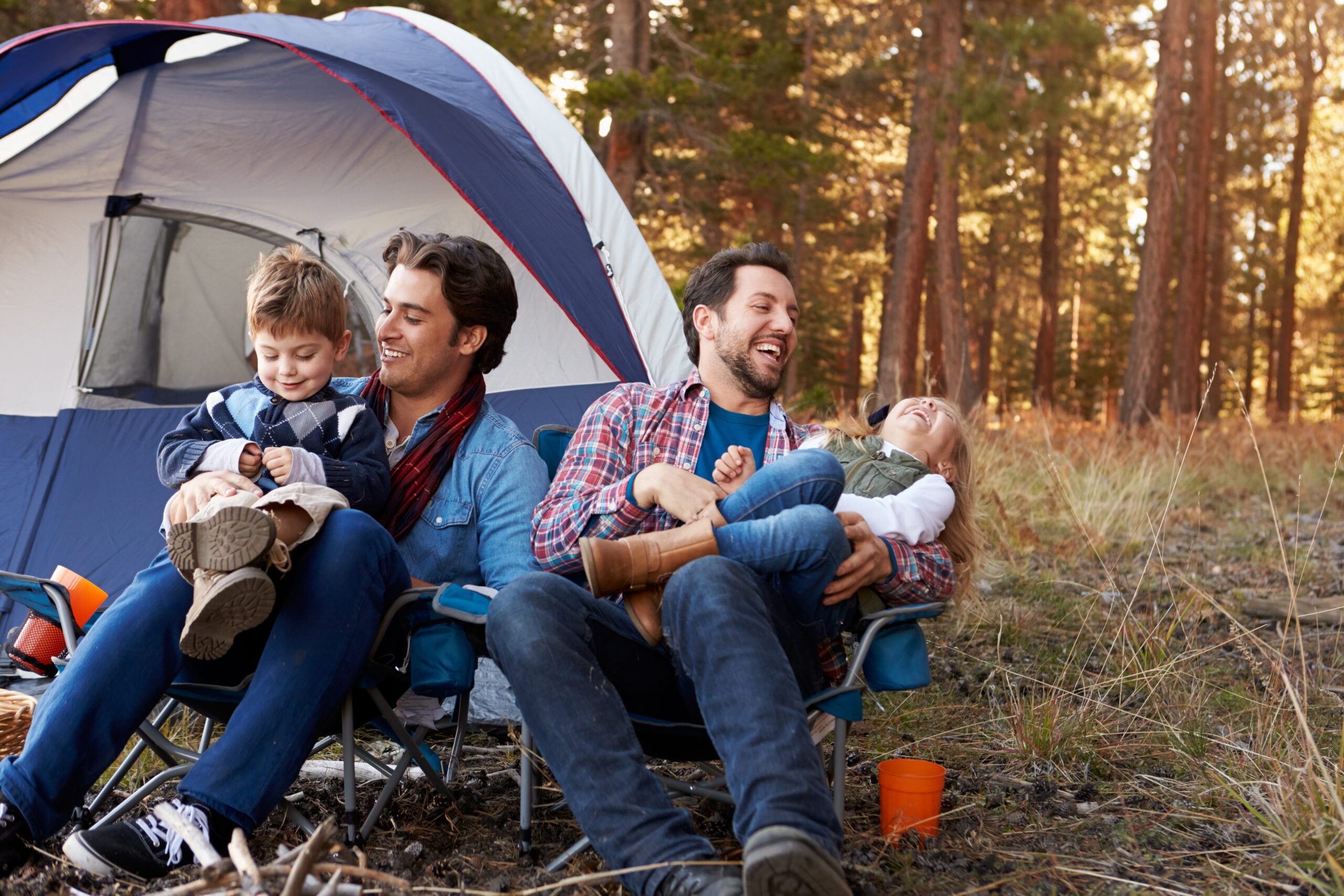From schoolcations to reunion vacations, Jenny Southan, editor and founder of Globetrender, shares her predictions for the future of family travel.
When it comes to the major changes taking place in family travel, there are three trends from our Travel in the Age of Covid-19 report that stand out.
1. Domestic Sanctity
Because of the travel restrictions and quarantine measures we are facing, which make travel for families particularly difficult (or impossible during the UK ban on holidays that we are currently experiencing), the only way to guarantee a relatively hassle-free vacation is to book a trip within your own country.
A while ago, I spoke to one father who has four daughters and had booked to go to the Maldives at half-term but chose to cancel because they will need to quarantine for two weeks when they get back and although the parents can work from home, the kids will need to go back to school.
Instead he said he would book a week at CenterParcs, which is a network of purpose-built resort villages in forested areas of the UK. This will be a typical situation for many families.
We are definitely going to see a lot of domestic travel continue throughout 2021. This is down to various factors but primarily the cost of PCR testing to get “fit to fly” certificates, which will cost hundreds of pounds each way for a family, but also the risk (in the UK) of being forced into a quarantine hotel on return, which would be a disaster.
2. Isolation Vacations
In this case, for families at the lower end of the scale budget-wise, we are talking about villa rentals, bubble tours and safaris, while at the higher end we are adding on personal chefs, private jet flights, helicopter transfers, and even entire hotel and private island takeovers. For example Thanda Island in Tanzania can sleep ten adults and eight children and can be hired for US$25,000 per night.
3. Ultra Flexibility
Parents are particularly sensitive to disappointing their children if they have to cancel or postpone a trip but the fact is, there is a huge amount of gambling taking place as we have seen with the attempts to book summer holidays to Europe last year and the ever-changing quarantine rules, and then having to rush home if the government decides to change the FCO advice at the last minute.
As we move forward, airlines and hotels are going to be far more flexible when it comes to rules around date changes and cancellations in a bid to encourage bookings. United Airlines in the US for example has scrapped all change fees for domestic flights permanently.
What other trends will we see taking off in 2021?
Whereas Wilderness Seeking is a wider trend that is emerging from the pandemic, I would say that for families, being near enough to civilisation, airports and healthcare facilities will be important.

After months cooped up at home, families are definitely craving nature-based, outdoorsy holidays, with an emphasis on spending time on farms, ranches and self-sufficient retreats, harvesting vegetables, living off the land, foraging, learning cultivation techniques to take back home to your own garden/allotment.
This trend has been referred to as “agrotourism” but I would specifically describe it as the rise of the Cultivacation. The Toglerhorf Apple Hotel in Italy and One Cat Farm in Wales would be great places to head to for this kind of experience.
Everyone is aware of the rise of camping and glamping (even trendy hotel chain Hoxton launched its own glampsite in the UK called Camp Hox last summer), but I would highlight the rise of Glampervan Road Trips over the next year, with both sales of RVs as well as rentals going through the roof. Travelling in your own vehicle is the safest way to get around and glampervans offer more comfort, self sufficiency and freedom than a car.
Reunion Vacations with grandparents – who will hopefully have been recently vaccinated – and other relatives will also be big. We will see people staying with family members overseas in their own homes or renting properties. We can also expect to see a rise in people buying holiday homes for themselves to future proof their family vacations down the line.
City breaks, however, will be low in terms of desirability (although you could argue that now is the best time to visit somewhere like Venice).
We are going to see far less “facility-heavy” holidays that rely on things like theme parks and crowded resorts with water parks and activity centres.
Although family cruises have grown massively over the last five years, Covid has put an end to that for the time being. New requirements will be for all passengers to have been vaccinated before coming on board – as children will be the last to get the jab, this will make cruises harder for families in 2021.
What trends do you see in how families will be filling their time while on holiday?
We are definitely seeing a shift away from theme parks to national parks.
Parents will be being forced to be more creative in their holiday planning as previously reliable, crowd-pleasing options such as Disneyland are off the menu.
We will see a lot of time being spent on beaches and in woodland – a return to nature and simplicity. Families will be surfing, swimming, building campfires, doing bushcraft, canoeing, hiring canal boats, staying at county house hotels, cycling and hiking.
Last summer, in the UK, I saw a flood of my peers rushing to stay at Birch, for example, which is a new member’s community and hotel north of London that is described as an “escape from urban living” and offers lots of workshops and activities for both adults and kids. They offer a young adventurers club, bird box building, glassblowing, pottery and soda bread masterclasses.
I think there will be an emphasis on using travel to help supplement children’s education, which has been compromised during the pandemic, but vacations will also rightly be about having fun, embracing freedom, socialising and seeing new things because their lives have been limited for so many months.
What trends are you seeing more broadly in travel that might indicate an increased demand for long-term school alternatives? Is this something you see becoming more normalised? If so, how do you think this will impact family travel plans?
From Globetrender’s perspective, working from anywhere will be the big trend to emerge from the pandemic. We have actually launched a dedicated WFA section on our website that looks at the acceleration of digital nomadism, untethered living will free us all up now it has been proven that working from home can be done effectively.
Radical Sabbaticals was a trend that we identified in our Future of Luxury Travel report and this is definitely something that is going to grow as a consequence of being able to work – and learn – from anywhere.
In the UK, in 2018, the number of children being homeschooled had risen by about 40 per cent over three years so there has already been an upward trend. A recent poll by childcare.co.uk has revealed that 24.3 per cent of parents are more likely to home school their children after the coronavirus pandemic is over.
After a long period of living in an isolated, tech-focused environment, there will be a desire for families to open up their perspectives. Covid has actually opened up an incredible opportunity to live an untethered lifestyle – and possibly even relocate away from urban environments or to countries abroad.
I think we will see a rise in Workaway Retreats for families, much in the way co-working retreats for digital nomads and even trendy co-living communes have exploded in recent years. We will see Paradise Relocations to places such as Barbados which is offering one year digital nomad visas that cost US$3,000 for families.
Schoolcations and Upskilling Escape whereby families can enjoy a break in a beautiful destination while children can catch up on lost learning – Puente Romano Beach Resort in Spain is now offering private tutors to families with children. Classes take place in hotel suites and can be extended post-holiday with zoom tutoring.
The hotel says it will provide “reassurance for families, particularly those parents who are able to work remotely and may choose to extend a stay with us”.
I also predict that with the rise of remote working among parents who are consequently spending more time at home with their kids, in the longer term we will see a rise in American-style Summer Camps. They might not go too far from home (we could see an increase in local Day Camps), but the idea would be to have a break from one another – the kids get time away with their peers and the parents get time alone, which they would previously have got when the kids were at school.
At the moment these have been closed in the UK. However, an interesting trend that has emerged has been parents sending their kids abroad to summer camps abroad in countries with fewer restrictions. I could imagine that the parents might go too, and work from there remotely.
These insights were originally shared on a webinar discussing the future of family travel, hosted by luxury travel company Black Tomato, and have since been updated for 2021.

